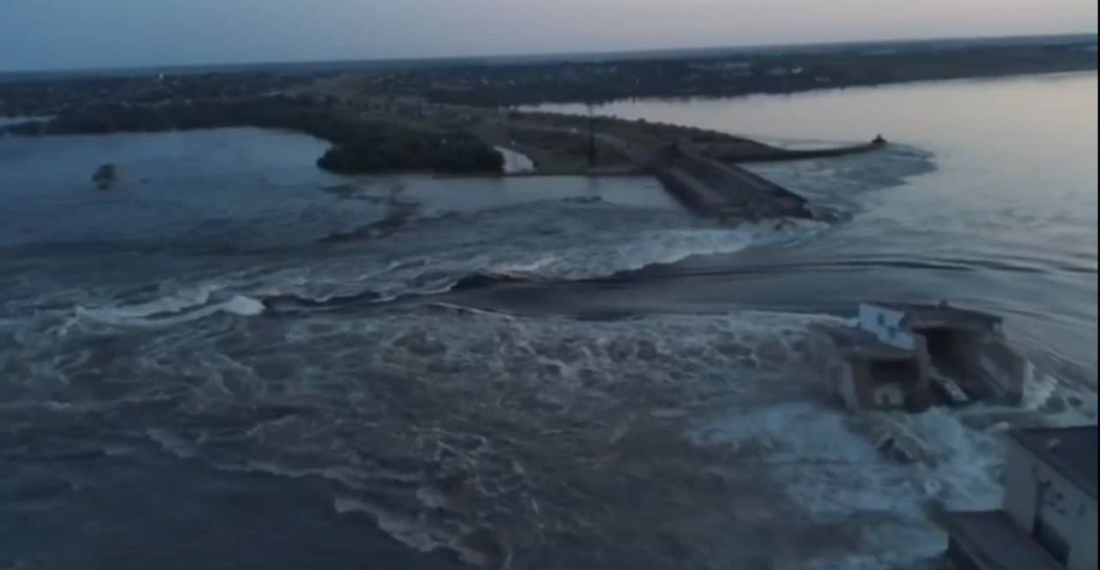Russia has blown up a dam in southern Ukraine's Kherson region. This was reported by Ukraine's Southern Operational Command early in the morning on Tuesday (6 June).
The Soviet-era hydroelectric plant lies on the Dnipro river, next to the city of Nova Kakhovka and approximately 50km east of the city of Kherson. Videos have emerged online of a major breach towards the Russian-occupied side of the river, and there are already reports of flooding in dozens of towns and villages downstream.
Ukrainska Pravda, citing a nearby resident, said there was a single explosion, after which the dam "collapsed like a house of cards."
Ukrainian authorities say that approximately 16,000 people are in the critical zone, and evacuations have already begun. It is expected that flooding down stream will reach critical levels at around 11am local time.
At 9am, Kherson Oblast governor Oleksandr Prokudin reported that the villages of Tyaginka, Lvove, Odradokamyanka, Ivanivka, Mykilske Tokarivka, Ponyativka, Bilozerka, and the Ostriv district in Kherson were "fully or partially flooded."
Ukrainian President Volodymyr Zelensky has called an emergency meeting of the National Security and Defense Council of Ukraine, according to the council's head, Oleksii Danilov.
Writing on Twitter, President Zelensky said "the destruction of the Kakhovka hydroelectric power plant dam only confirms for the whole world that they must be expelled from every corner of Ukrainian land."
"Not a single meter should be left to them, because they use every meter for terror," he said.
Meanwhile, the Ukrainian Foreign Minister Dmytro Kuleba tweeted, "Russia destroyed the Kakhovka dam inflicting probably Europe’s largest technological disaster in decades and putting thousands of civilians at risk. This is a heinous war crime."
Ukrainian outlet United24 tweeted that the dam breach "is one of the largest man-made disasters in recent history that will have dire consequences for the environment and people for years."
Previous warnings about Nova Kakhovka dam, record water levels before explosion, concern over Zaporizhzhia nuclear power plant
There have previously been numerous warnings over the likelihood that Russian would blow up the Nova Kakhovka dam. In October 2022, the Washington D.C.-based Institute for the Study of War Russia would likely do so to cover its withdrawal and "prevent Ukraine's forces from pursuing Russian forces deeper into Russian-occupied Kherson Oblast."
Ukraine ostensibly began their long-awaited counteroffensive on Sunday (4 June), with Deputy Defense Minister Hanna Maliar since claiming gains near the Russian-occupied city of Bakhmut.
It has also been reported that, in the days prior to dam breach, water levels in the reservoir had reached a 30-year high.
There are also concerns over the safety of the Russian-occupied Zaporizhzhia nuclear power plant, which is located upstream and takes water from the reservoir to cool the power station, which is the largest of its kind in Europe.
The International Atomic Energy Agency tweeted on Tuesday morning that their experts at Zaporizhzhya Nuclear Power Plant are "closely monitoring the situation", but added there is "no immediate nuclear safety risk at plant".
Ukraine's state-owned energy company Ukrhydroenergo has also said that the dam is "beyond repair".






